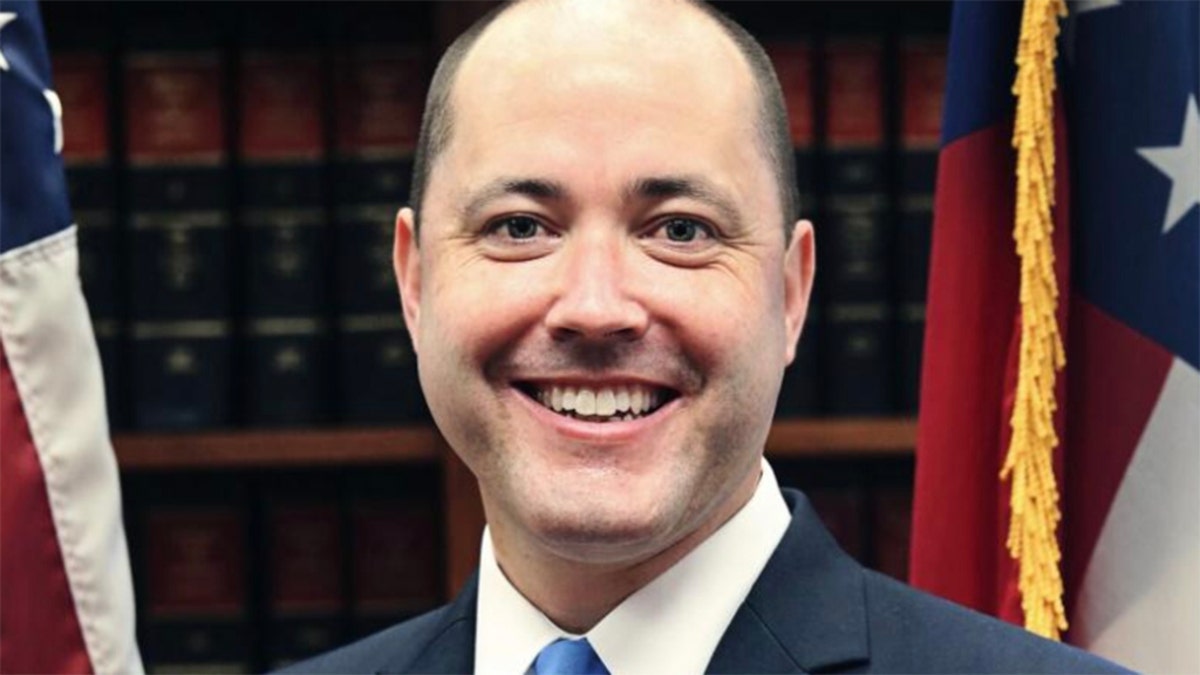FDA-approved coronavirus saliva test could be used at home: Dr. Marc Siegel
Fox News’ Dr. Marc Siegel provides insight into new coronavirus tests and which company is winning the vaccine race.
The Big Idea is a series that asks top lawmakers and figures to discuss their moonshot — what’s the one proposal, if politics and polls and even price tag were not an issue, they’d implement to change the country for the better?
Georgia Attorney General Chris Carr and other Republican AGs are pushing to protect businesses reopening during the coronavirus pandemic from lawsuits that may arise from customers who claim they contracted the virus in the course of dealing with them.
Liability protection has been at the forefront of negotiations on Capitol Hill for the next stimulus package, with Senate Majority Leader Mitch McConnell, R-Ky., stating it is imperative to include this.
Georgia, meanwhile, has already passed a state law protecting local organizations including businesses from such lawsuits without completely stripping individuals of their ability to hold businesses accountable if their conduct is particularly egregious.
The state law protects entities that take care to follow all state and federal reopening guidelines, in order to encourage the reopening of the economy in a safe fashion.
Carr wants to see such protections implemented in other states, too. He discussed his idea with Fox News:
Q: What is your big idea?
Carr: Well our big idea is business liability protection for companies that do it the right way. We’ve got a global health pandemic going on, we also have a global economic crisis. And we know that there are economic headwinds, we know that the impact of COVID has also been psychological and people are concerned about going back to their jobs, or going to a restaurant, or going out in public. And priority 1-A for every state has been the protection of its people, and then priority 1-B also has to be the protection of the economy. Because it could be devastating to contract coronavirus, it’s been devastating to individuals and to families, but it can also be devastating to lose your job or the business that you built.

So we have been working, both at the federal and the state level as Republican attorneys general to make sure that those companies that do it the right way, that follow federal guidelines, that follow their state guidelines and best practices in an industry, have protection from any frivolous lawsuits that may come down the line. It is important that the people in our state have access to the courts when there has been gross negligence when companies have intentionally or knowingly either made a product or delivered a service that they knew could put somebody in jeopardy, this bill provides for that. This is only a negligence standard, not a gross negligence standard.
MITT ROMNEY'S BIG IDEA: PREVENT SOCIAL SECURITY AND MEDICARE FROM GOING BANKRUPT
But we know that there’s enough headwinds out there, and we got to do all that we can to incentivize companies to do the right thing the right way and so that someone doesn’t come down the line and file a lawsuit and undercut what we’re trying to do and that is to protect the economy and protect customers, protect employees, and protect employers.
Q: Who specifically would this cover?
Carr: This would cover both for-profit, non-profit, big companies, and small companies. If you are an entity that is going to be open to the public, this would be something that would cover you. Now let me caveat that by saying each state might do it differently if they’re going to do state legislation. We’ve done some in Georgia, the federal bill has been introduced in the Senate. I know that it’s a process. What starts off as a bill that’s introduced can change many, many times if it makes it through the Congress and to the president’s desk.
But the point is to provide—and this needs to be for big and small companies, for non-profits, you name it—is to provide an incentive to do it the right way to get people back to work.
SENATE GOP SEEKS COVID-19 LIABILITY PROTECTIONS FOR SCHOOLS, BUSINESSES
Q: You mentioned that this would protect businesses that do things the right way and follow guidelines. Things could get tricky, say if you have a store and maybe some customers aren’t following the guidelines. How would that work?
Carr: There would be protection for that company, so long as they were following the guidelines, which might include also identifying the customers that aren’t doing it the right way, asking them potentially to leave, asking them to put a mask on or socially distance, whatever it may be.
Some of this may end up being issues that are litigated, but again the point is to try to encourage companies, or organizations, or entities to do it the right way, to follow federal guidelines, CDC, OSHA, you name it. We in Georgia have executive orders that, for example, restaurants have 39 additional requirements in order to open and remain open. And then there’s best practices in the industry.
STEPHEN MOORE’S BIG IDEA: REPLACE FEDERAL INCOME TAX WITH NATIONAL SALES TAX
So again, would some of them have to be litigated? It would. But the point is to try to provide basic negligence liability protection for companies that do it the right way while also allowing individuals—those that have suffered at the hands of those that are grossly negligent, that don’t care about public safety that maybe have created a product that they know isn’t going to work or was faulty to be held responsible. So it is a balance, some of that may end up having to be litigated or a court would have to find factual findings one way or the other, but that’s the premise behind what we’re trying to do.
Q: There has been some opposition to this, including recently the players associations for major sports leagues were lobbying against it, claiming that they should not have to assume the risk related to an illness that we’re still learning about. How do you address those concerns?
Carr: There’s going to be opposition, and that’s why in the marketplace of ideas, and our state legislatures, and in Congress you can debate those issues. And some folks may have opposition and others don’t.
I will say that in Georgia we had good input and good conversation with both the chambers of commerce as well as the trial lawyers association. And the reason is, again, people understand this concept that it is not to prohibit anybody from getting to court if there is truly a justifiable and justiciable issue. But if companies are trying to do this the right way, we’re trying to open up the economy in a smart and appropriate fashion.
SEN. RICK SCOTT'S BIG IDEA: IMPOSE CONGRESSIONAL TERM LIMITS
And so there may end up being -- this may be at the federal level and I hadn’t seen the players’ associations had done that so I presume that’s at the federal level -- and that’s why you debate these issues and you have that good discussion. I presume that will happen at the federal level.
I served as chief of staff for one of our senators from Georgia for years and I know the process is a thorough one and what a bill looks like introduced may look differently, and I suspect that might be the case here as well.
Q: In Georgia, you’ve been able to do this. What do you think the chances are that this could happen on the federal level? Senate Majority Leader Mitch McConnell has been adamant about including this in the next stimulus package. President Trump hasn’t been quite as enthusiastic, but do you think that we’ll be able to see this become a reality in the near future?
Carr: Well I hope we can because I think this is the right thing to do, for the right reasons, and it’s the right approach. And I commend Leader McConnell for making this a priority. I also know that the Senate is in Republican hands, I know that the House is in Democratic hands, I know that there is a lot that’s going on.
CLICK HERE TO GET THE FOX NEWS APP
However, there are enough headwinds out there right now that businesses are having to deal with, that the nation is having to deal with. In order to give a little predictability and reliability, I would hope that the Congress could debate this, have a good discussion where it ends up so long as it provides certain protections to businesses that do it the right way, providing access to the courts for individuals that truly have been harmed.
I think this strikes the right balance and I would really encourage Congress—and my other 21 Republican AG colleagues would do the same—encourage Congress to take this up, have a good debate, and come to a good conclusion, something the president could sign.






